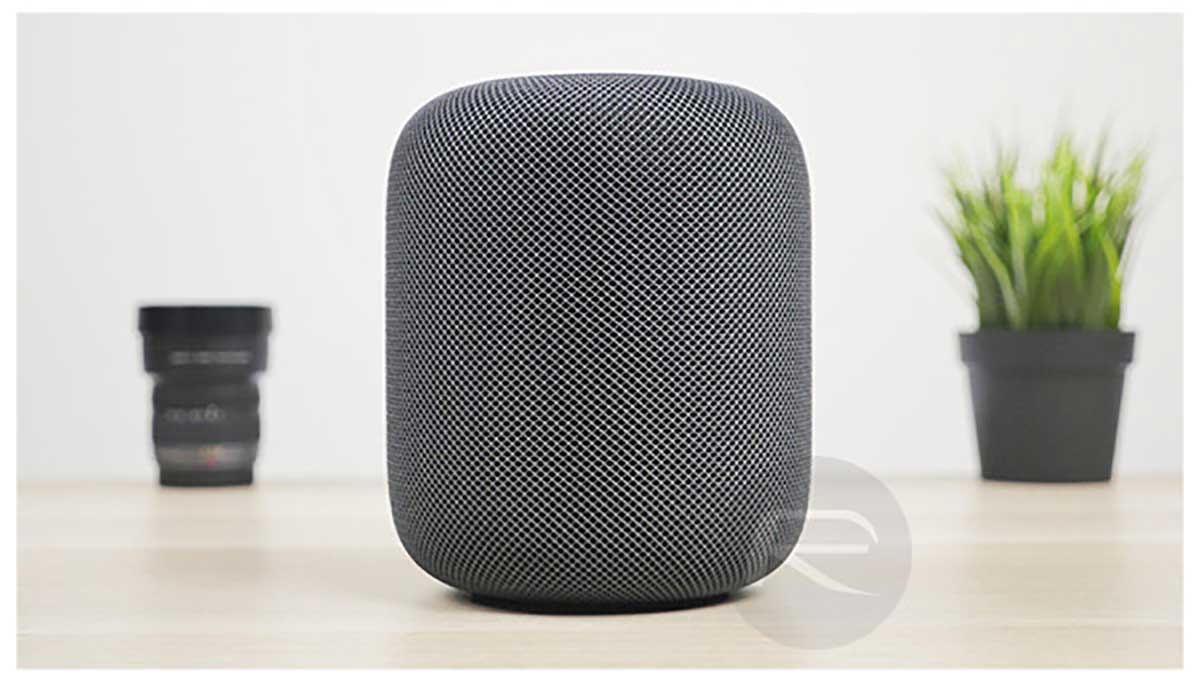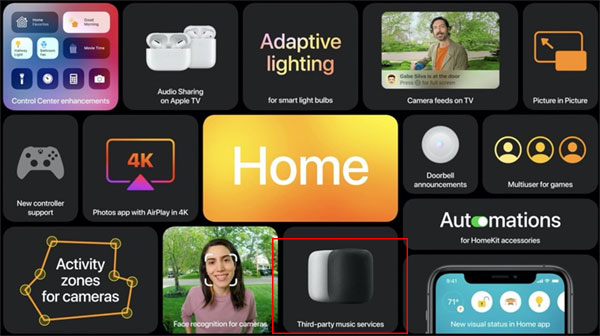Apple is planning on adding third-party music streaming service support to its Siri-powered HomePod smart speaker. The mac-maker hasn’t provided intricate details as yet, but a WWDC presentation slide clearly shows the intention.
In its current state, Apple’s stunning HomePod hardware only supports the company’s own Apple Music streaming platform. Unlike competitors, such as Amazon’s Alexa-powered Echo devices, owners aren’t able to stream music natively through the HomePod using third-party services like Spotify, Tidal, or Amazon Music.

If the WWDC presentation slide is accurate – and there is no reason to believe it won’t come to fruition – then HomePod owners may soon have a choice of which music platform they adopt.
HomePod owners are currently able to stream music through services like Spotify if they use a middle-ware protocol to connect a streaming device to the HomePod itself as a speaker. Any music-based questions asked to Siri on the HomePod hardware – such as “Hey, Siri, play music by Eminem,” will automatically be directed to Apple’s Music platform. Presumably, once Apple opens this up and other providers adopt Apple’s newly open APIs or integrations, a HomePod owner will be able to specify the exact service that they want to consume the music through.
Amazon has had amazing success with its Echo range. Partly because of the price of the hardware, but also because consumers actually have a choice of which music service they want to subscribe to and use; they aren’t purely locked into using Amazon Music natively. Apple has shown an interest in extending the HomePod range to try and gain a larger market share in that particular industry so it makes perfect sense that the company has recognized the need to give owners a choice rather than locking them into its own service.

At the time of writing, there are no timelines in place for this change. It’s also unclear which companies will adopt this new feature and whether or not Apple will try and claim a modicum of control over who it opens up the APIs to. For example, will other audio apps and services be granted access to this feature, such as podcast apps that compete with Apple’s own app? Only time will tell as the specifics become clear.
You may also like to check out:
- Download iOS 14 Beta 1 IPSW Links And Install On iPhone 11, Pro, XS Max, X, XR, 8, 7, Plus, 6s, iPad, iPod [Tutorial]
- iOS 14 Beta 1 Download IPSW Links, OTA Profile And iPadOS 14 Beta 1 For iPhone And iPad
- iOS 14 Beta 1 Profile File Download Without Dev Account, Here’s How
- iOS 14 Hidden Features On iPhone And iPad That You Don’t Know About [List]
- Download: iOS 13.6 Beta 2 IPSW Links, OTA Profile File, Beta 2 Of iPadOS 13.6 Released
- iOS 13.5.1 Downgrade No Longer Possible After Apple Stops Signing iOS 13.5 Jailbreak Firmware
- Jailbreak iOS 13.5.1 Using Checkra1n, Here’s How [Video Tutorial]
- Jailbreak iOS 13.5 On iPhone 11, Pro Max, SE, iPad Pro, More Using Unc0ver 5.0.0 [Tutorial]
- Download: iOS 13.5.1 IPSW Links, OTA Update Released For iPhone And iPad
- Jailbreak iOS 13.5 Without Or No Computer, Here’s How
- Apple Watch ECG App Hack: Enable Outside US In Unsupported Country On Series 5 & 4 Without Jailbreak
You can follow us on Twitter, or Instagram, and even like our Facebook page to keep yourself updated on all the latest from Microsoft, Google, Apple, and the Web.

